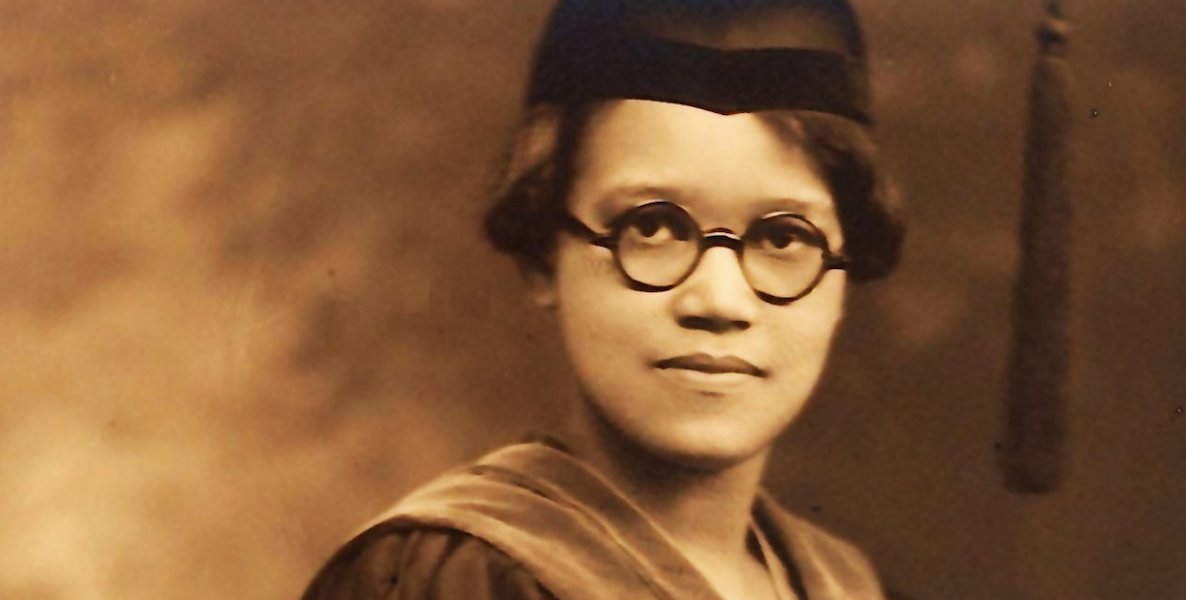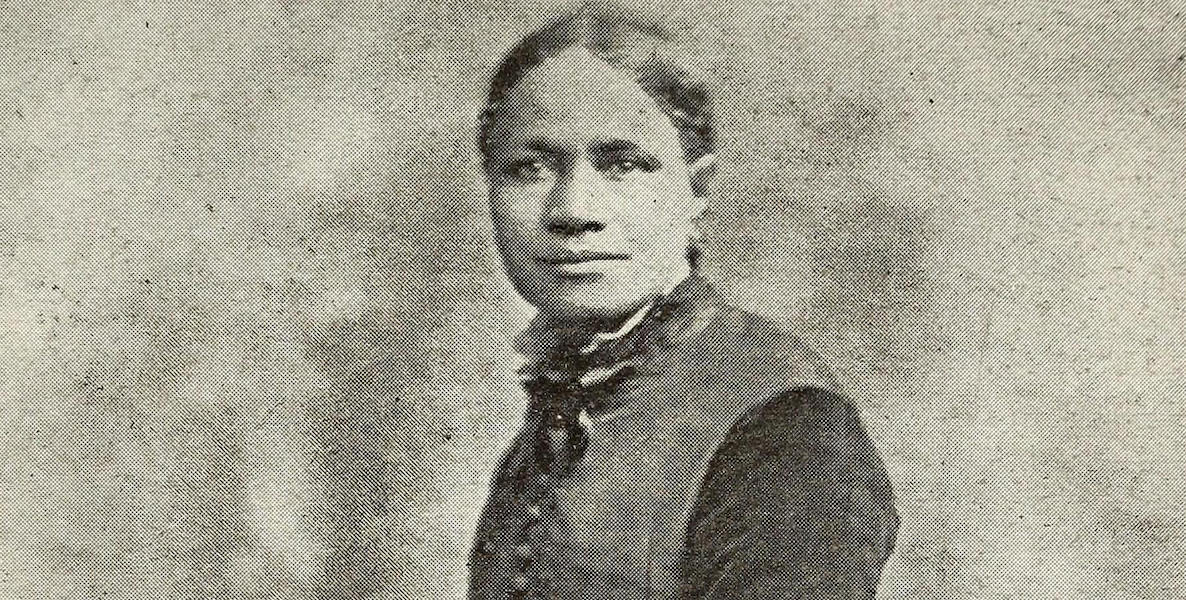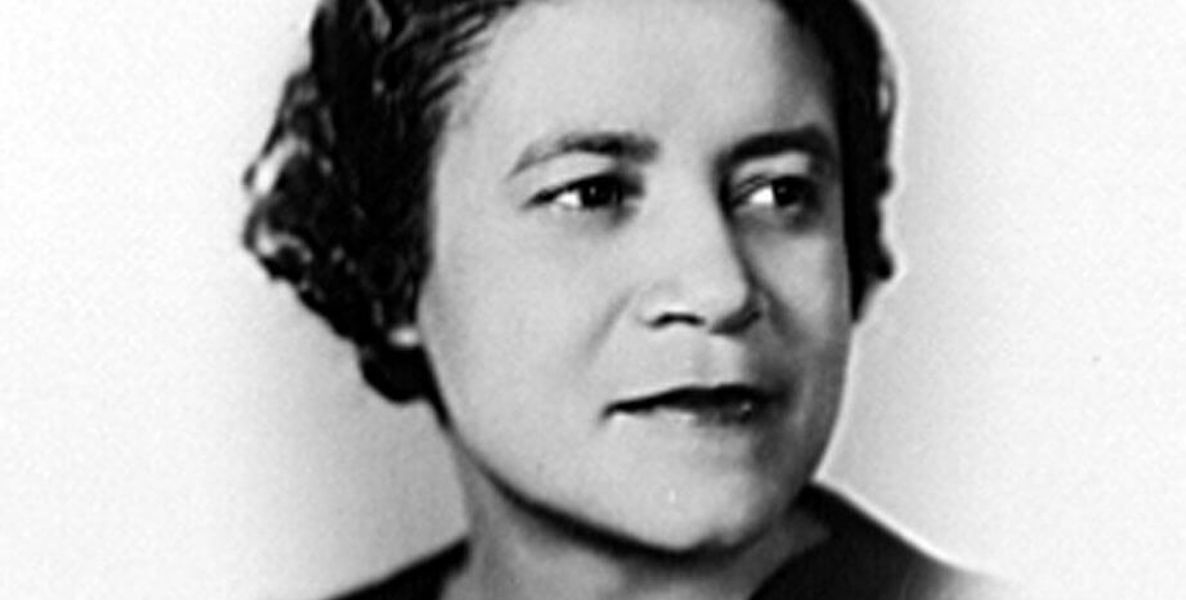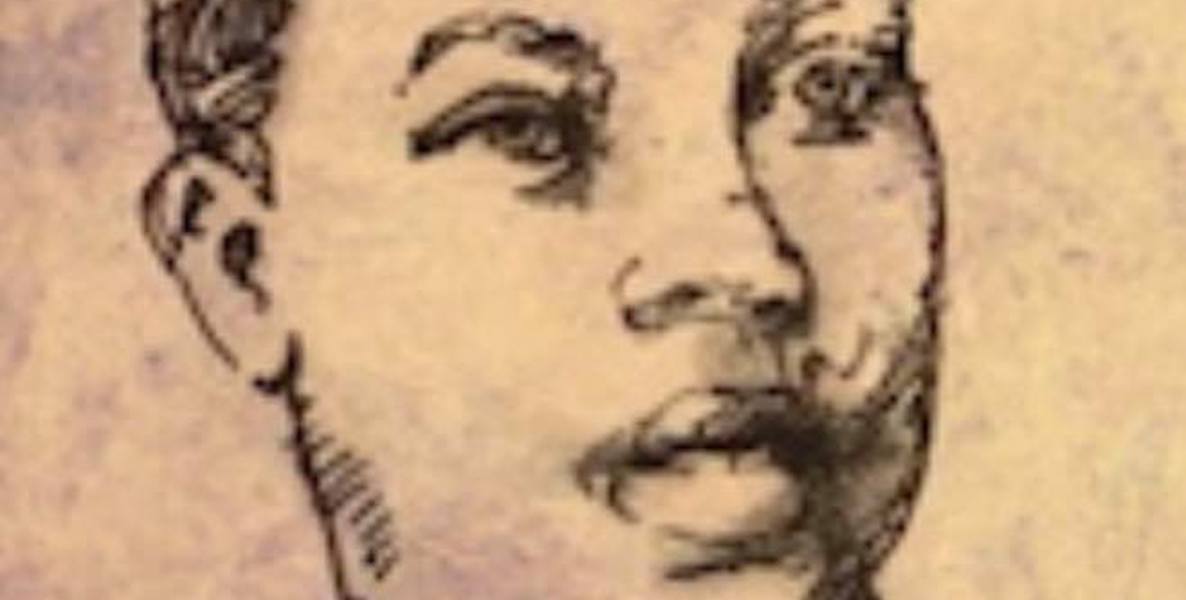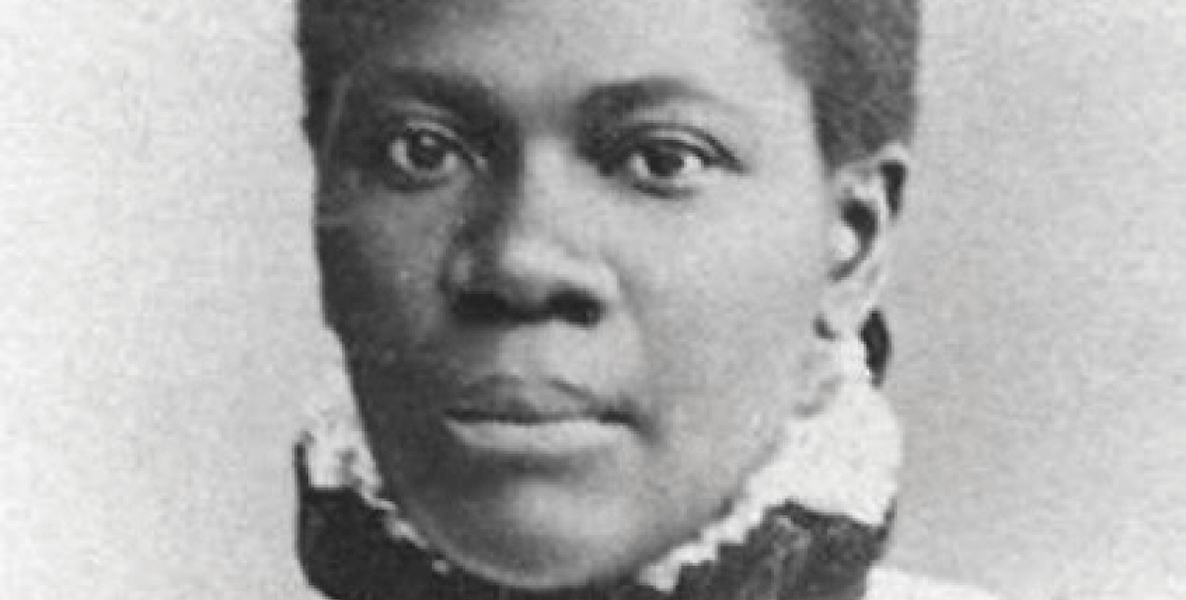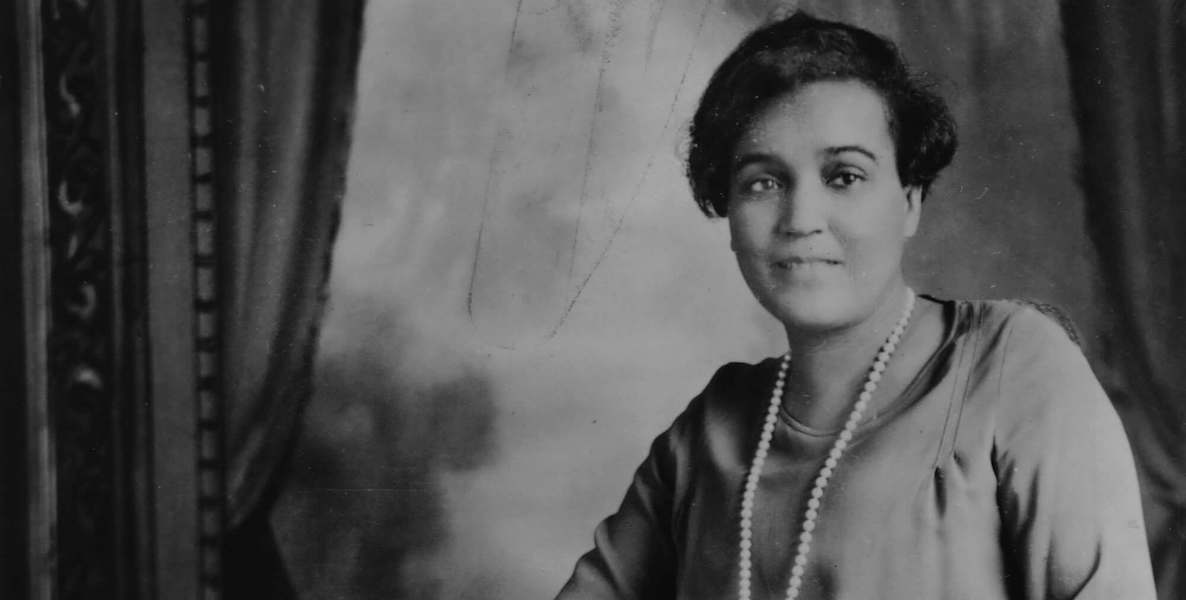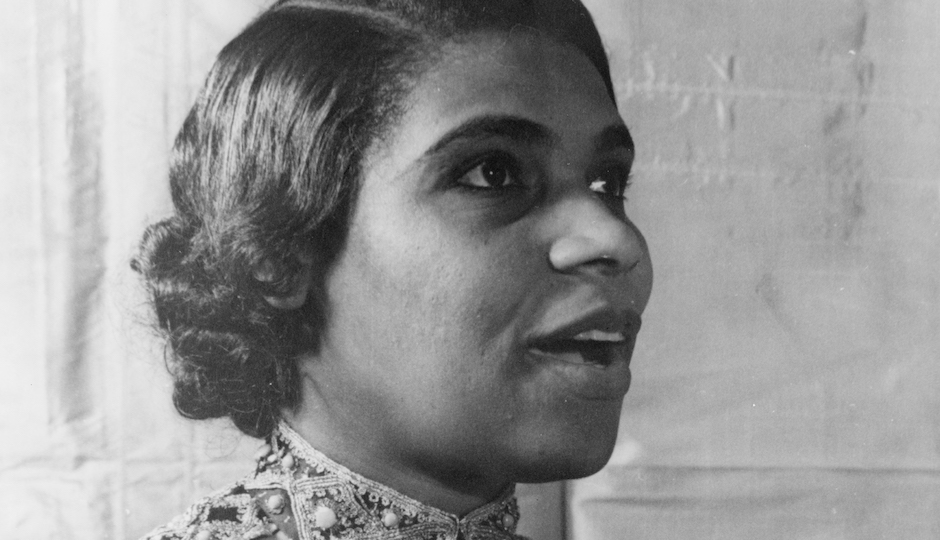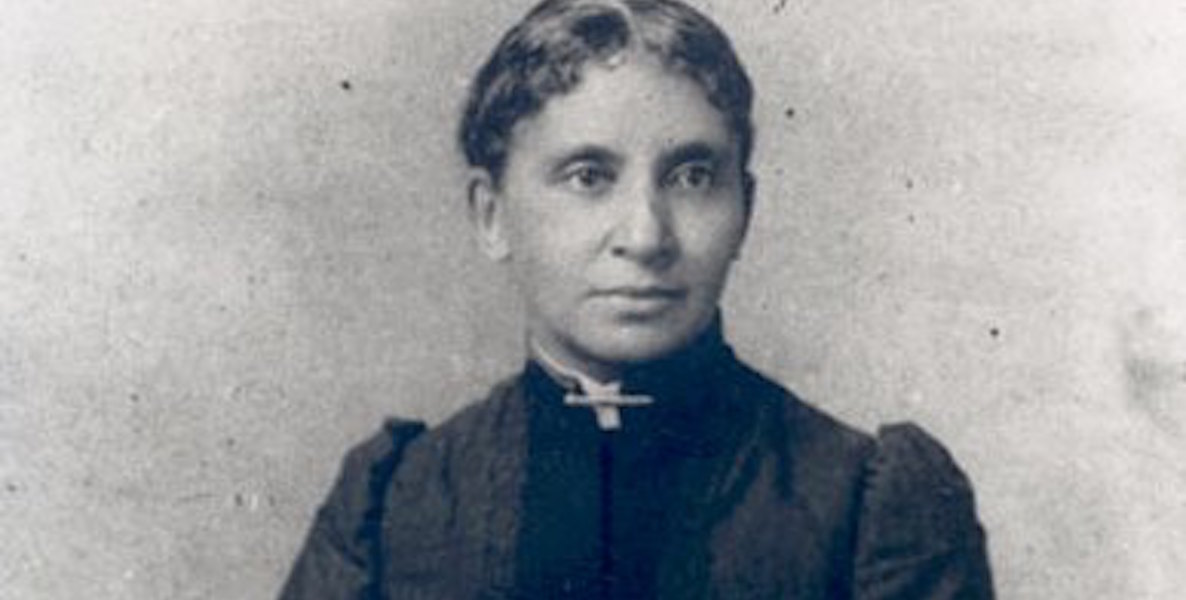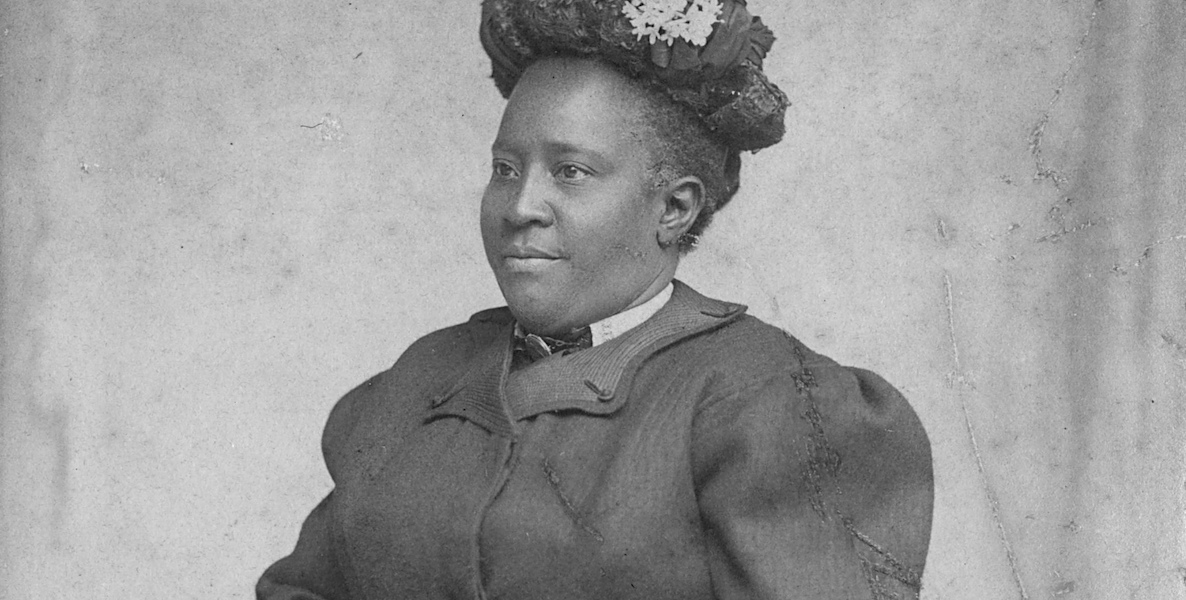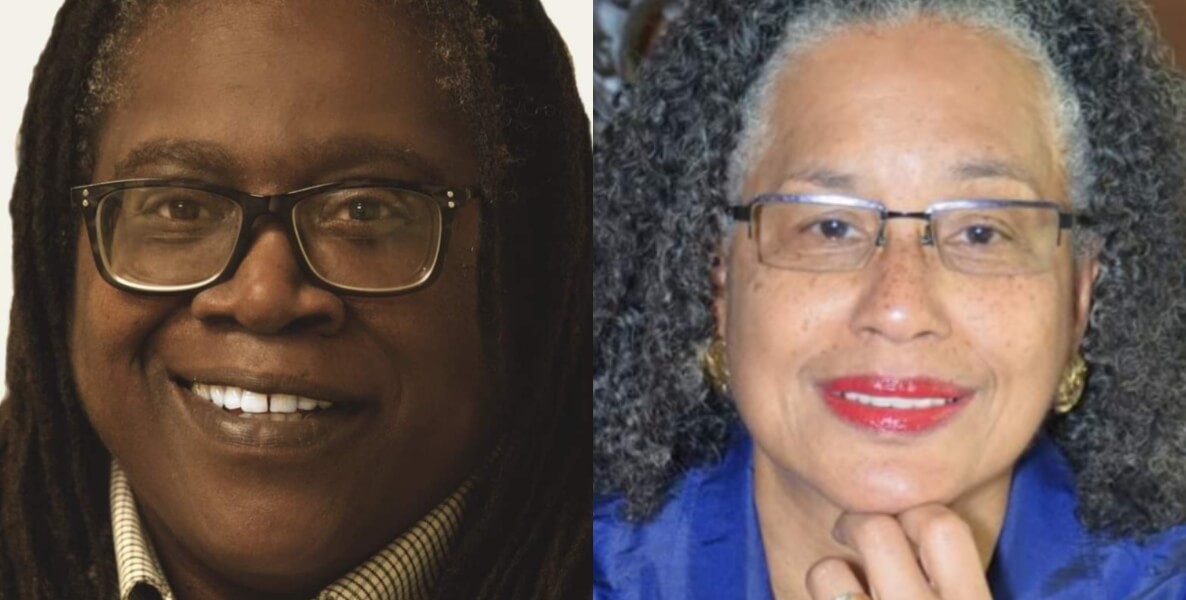Of course you can’t judge a book by its cover.
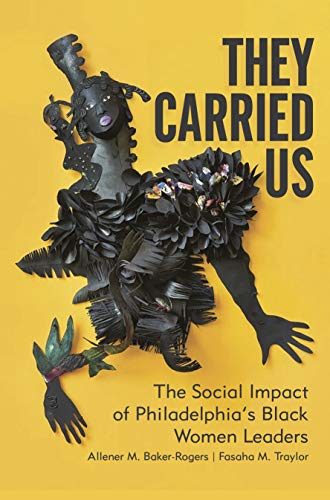 Except, perhaps, if that book is They Carried Us: The Social Impact of Philadelphia’s Black Women Leaders, by Dr. Allener M. Baker-Rogers and Fasaha M. Traylor, which will be released on Saturday.
Except, perhaps, if that book is They Carried Us: The Social Impact of Philadelphia’s Black Women Leaders, by Dr. Allener M. Baker-Rogers and Fasaha M. Traylor, which will be released on Saturday.
The cover of the book, which chronicles the lives and far-reaching impact of 95 black Philadelphia women, starting with “Black Alice” in the 1600s, is dandelion yellow with an arresting image by Philly artist Barbara Bullock, one of the women featured in the book.
Done in mixed materials, Bullock’s piece calls to mind the plight of black women in this country, and the many directions in which black women have historically been pulled. It evokes a sense of struggle, of resilience, of hope.
The name of the piece, which the book’s authors didn’t know when they selected the work, is eerily fitting, suggestive of what actually does lie beyond the cover: Ubiquitous Presence.
Learning that, says Traylor, felt like “it was almost like some kind of spiritual thing, like the universe was working in concert with us.”
Here, Baker-Rogers and Traylor—lifelong educators and activists who have grown so close through their co-authorship that they refer to each other affectionately as “Sissy” and practically finish each other’s sentences—talk about the inspiration for the whopping 600-plus page book, why its release is more timely than ever, and what they hope Philadelphia takes away from it.
Jessica Press: How did you decide which 95 women to include? For all of the respect and admiration you share, did you have to sit in a room and battle it out?
Fasaha Traylor: We really didn’t have any arguments about who should be in. What was hard was leaving people out that we both thought should be in.
Buy the bookDo Something
Dr. Allener M. Baker-Rogers: The book is so long in part because we really delve into these women’s lives. We start when they were little girls. We wanted our readers to get really full contexts for these women, through various stages of their lives. And you can’t really do that and have a short book.
JP: Let’s talk about the beautiful title, which makes me wonder: Who are the women who carried each of you?
AMBR: The first woman who carried me and continues to carry me has been my mother. I was a teenage mom, and my mother and a couple of other women in my family were not going to let that be the end of my story. And so often, unfortunately, that has been the end of too many young women’s stories. My mom knew that school was always important to me, and she was determined that I was going to continue to go to school and that she’d do whatever it was that she could; very often that meant taking care of my daughter as I went through college. So my mother, most certainly, was that woman who primarily carried me.
The second woman who carried me, and I don’t talk enough about her, was my first mentor. I was a student at Drexel University, and at Drexel you have a requirement to do an external cooperative experience, co-op. I was the only black person in my class of students. And everyone else, all the white students in the class, easily got or were assigned internships, co-op experiences, by the office that was responsible for doing that. But they could not find anything for me. And so I ended up working in a department store, JCPenney. And that’s where the second woman who carried me stepped in: That was a next door neighbor of mine, who herself was working at the US Mint as a secretary, and she said Well I’m gonna talk to the personnel director and get you a co-op experience there.
9 black female leaders you should knowRead More
So those three women, having them in my life very early in my life, put me on and kept me on a path.
FT: I didn’t know that, which is surprising because at this point I feel like I should know everything about you.
AMBR: I know, I feel the same way!
JP: And you, Fasaha?
FT: There are so many women who have inspired me, just their presence in the world has inspired me. I hesitate to even name any of them because they’re so numerous. But, of course, there’s my mother. My mother made me a reader. I remember reading a book on a bus when I was probably four? I can’t even remember the title of the book, but I remember a line from the book “The cute grey squirrel.”
JP: Do you think the strong women in your life instilled in you the importance of turning around and teaching and nurturing others?
FT: Oh yeah, absolutely, no question about it. There’s just no question about it. And the people who really implanted in me the importance of education run the gamut; they were students, they were teachers, they were movements, they were even teachers who said things about me like “You’ll never do something.” Even those kinds of things, for some of us, they add fuel to the fire. Those people who spur you to do things that they think you cannot do.
JP: Determination and resilience are trendy buzz words now, but for all of the differences between the 95 women in this book, those really are their unifying traits. Did you consciously try to drive those values home as you were writing?
AMBR: There were lots of surprises for us, and there were some things that were not surprises for us. The fact that the women displayed a certain type of resilience, tenacity, or pure grit and determination was obviously something that we suspected. The forerunners at the start of the book were going through times that none of us could imagine, so they had to have nothing but push and fight in them. But [from] women who were with us in the 20th century, as well, like Justice Juanita Kidd Stout [a former Justice of the PA Supreme Court], you [learn you] have to easily fold or decide that you are a part of, you deserve to be a part of, and you will be a part of. Certainly Dr. Sadie T.M. Alexander was one of those women as well. What may have been surprising, if anything, was the fact that they just didn’t quit, when they could have easily done that.
JP: How did you two come to write the book together?
FT: First of all, we shared a board membership and chairmanship of what was at the time Philadelphia Citizens for Children and Youth. So we had a lot of interaction around a lot of issues having to do with children and youth in Philadelphia. But then Sissy came up with this bright idea and I’m going to let her describe it.
AMBR: A lot of times our parents have said to us “Make good relationships with people because you never know who’s going to come back in your life.” And I would say that is very much what happened with the two of us. I had this idea, and it didn’t just drop out of the sky, it was an extension of a previous project that I had overseen. I wanted to profile local heroes and I wanted those local heroes to be women.
And when you start to think about who it is you want to work with on something like this, it better be somebody who you believe in, somebody who you trust in terms of their work ethic, in terms of their ability to carry their own, and in terms of their ability to not look at you as just the person who brought them the idea but as your partner. And honestly Fasaha was the only person who came to mind. And we both have come to value each other, to love each other.
JP: Reading the book, it strikes me that it would be such a meaningful text for Philly students. Have you been in touch with the School District of Philadelphia about getting it in the hands of students?
FT: We are thinking about that all the time. We are really so determined that young people have access to these stories. As soon as we get past our launch event, we are gonna really focus on getting these books into schools and public libraries. We intend to do that.
AMBR: Any author can say you know I want all these people to get this book—but we want these kids and young people to get this book because it really, truly is a roadmap for them to succeed. The history is part of it, but another part of it is this notion that You can do things. You’re already doing things and here are some women who have done some of those things as well.
I live in a very, very small neck of the woods in Virginia now. And the young people here, what they do after they graduate from high school, they work at Walmart, they work at McDonalds or Wendy’s, or they work in agriculture. That’s what they have here. And that’s problematic. So I’ve already been in contact with my local library, and I’ll be donating books to the teen center there and different things like that. This is our job. Not just to sell books, but to make sure that the young people who need it get it.
Help expand the book's reachDo Even More
FT: Well, one of the things I hope is that people in every institution in Philadelphia, and outside of Philadelphia, that they will begin to look around them and say who have WE been overlooking? I really hope that that happens. I really, really do. On a personal note, I just told my husband last night that I would be satisfied with this in my obituary.
AMBR: I want this book to leave people hopeful. And in part what I mean by that is hopeful for a different world, hopeful for a different reality, hopeful for us to all really, truly continue this walk of coming together. And certainly at a time like we’re living in, we’re so fractured. And as a black woman, I can honestly say that there are things that are happening today that I never thought I would have to see or hear. And so for me the word hope comes to mind. That I would like this book to leave us in a better place and in a different place and with a much clearer understanding of our world and who’s standing next to you.
And then there’s what happened to me in the drug store yesterday. My wife got her copy of the book and I had to steal it long enough to run into the drug store where everybody in there is my friend. So I go into the drug store and I toss it on the counter and a good friend of mine is there and she’s talking to a friend of hers who she hasn’t seen in forever—and I didn’t know this woman and that’s why I know she hadn’t seen her in forever, because where I live everybody knows each other. And so this woman who was a stranger to me asked, Why the title? Why They Carried Us?
And I paused for a second and what came out of my mouth was this: Because they did. And I want a clear recognition of that.
This interview has been edited and condensed.



